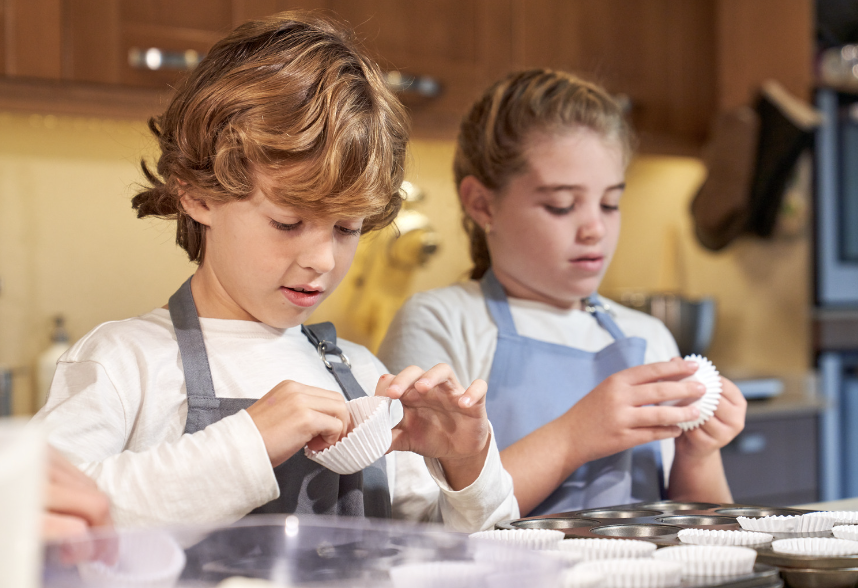Children and Meal Prep: Unlocking Cognitive Growth

In the hustle and bustle of modern life, the significance of meal preparation and cooking extends far beyond the kitchen for children. Beyond the sizzling pans and aromatic spices lies a powerful tool for enhancing children’s brain development. From improved fine motor skills to honing critical thinking abilities, here’s a closer look at the myriad benefits of involving your little ones in the culinary realm.
1. Improved Fine Motor Skills:
Cooking demands a symphony of hand-eye coordination and precise movements. As children engage in tasks like chopping, stirring, and pouring, they refine their fine motor skills. The dexterity required to handle utensils and ingredients lays a strong foundation for future activities like writing, tying shoelaces, and other intricate tasks.
2. Enhanced Executive Functioning:
Planning, organizing, and executing a recipe requires a significant amount of executive functioning. Children learn to follow step-by-step instructions, manage their time effectively, and make decisions about ingredient quantities and cooking times. These skills not only translate to the kitchen but also prove invaluable in academic and daily life scenarios.
3. Real-World Math Application:
Cooking is a delicious journey into the world of real-world math. From measuring ingredients to adjusting serving sizes, children naturally engage in mathematical concepts. Fractions, proportions, and basic arithmetic become tangible as they navigate the kitchen, providing a tasty context for mathematical understanding.
4. Improved Critical Thinking Skills:
Deciphering a recipe, problem-solving in the face of unexpected challenges, and adapting to changing circumstances in the kitchen all contribute to the development of critical thinking skills. As children learn to troubleshoot and make informed decisions, they are actively fostering essential cognitive abilities.
5. Reading and Vocabulary Development:
Following a recipe involves reading comprehension and expanding vocabulary. Children encounter new words related to ingredients, cooking techniques, and kitchen tools. This exposure not only enriches their language skills but also reinforces the importance of literacy in everyday activities.
6. Enhancing Creativity:
Cooking is an art form where creativity knows no bounds. Experimenting with flavors, combining ingredients, and presenting dishes with flair all contribute to fostering a child’s creative spirit. The kitchen becomes a canvas for self-expression, allowing young chefs to explore their imagination and develop a lifelong appreciation for creativity.
7. Learning Science Concepts:
The kitchen is a mini laboratory, and cooking is a hands-on science experiment. Children observe transformations like melting, boiling, and mixing firsthand. Concepts such as heat, chemical reactions, and changes in state become tangible, making science an interactive and flavorful subject.
This is just the tip of the cooking iceberg. Want to learn about the social and emotional benefits? Click here! Incorporating meal prep and cooking into a child’s routine is more than just a culinary exercise—it’s a recipe for holistic brain development. From the tangible benefits of improved fine motor skills to the intangible growth in creativity and critical thinking, the kitchen becomes a classroom where lifelong skills are nurtured one delicious dish at a time. So, grab those aprons, measure out the ingredients, and let the culinary adventure begin!
Want our FREE parent guide to get you started on the right path with mealtimes? Download it here
Not sure if your child needs help? Take our free 2 minute quiz here